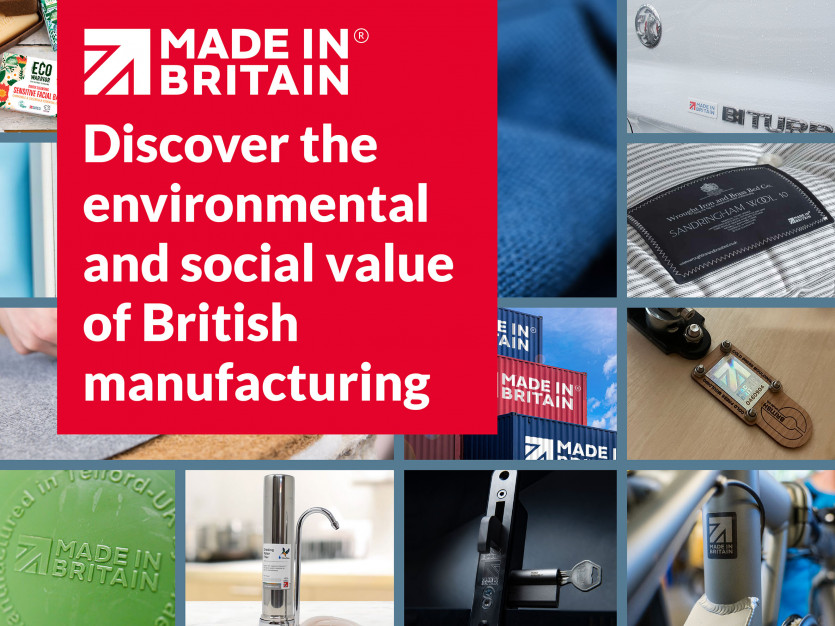 By John Pearce
By John Pearce
CEO, Made in Britain
Made in Britain took an important step forward in August by adding a new goal to our organisation’s mission, that will further enhance our standing within the trade sector and also support the UK's journey toward sustainable growth and socio-economic progress. Here’s what we did and why it matters.
As a non-profit trade body, our objective has always been to serve the businesses that are members, in a way that brings them tangible (and plenty of intangible) benefits. We want responsible British manufacturing to thrive at home and abroad. That’s why we provide our members with a protected and registered trademark, helping buyers and consumers easily identify products in the UK. The more British-made products that carry the licenced trademark, the easier it is for more people and businesses to choose locally-made goods.
The benefits of buying goods made in this country by a business you can trust are not just economic but also bring environmental and social advantages for us all. In applying to join MiB, we record evidence and a formal confirmation that 100% of the workforce involved in making the final product/s that carry the mark are in this country and employed by the manufacturing business that holds the licence.
As we all know, the materials and parts that go into making modern products can come from all kinds of sources and are often only available as imports. We don’t hold all of the many thousands of different materials needed to make everything we manufacture in the UK. But we can make sure that nothing goes to waste and that as much of the energy used in running the factories is greener and cleaner – renewable energy making regenerative products in a circular economy with much less waste.
In recognition of the many successful actions and behaviours of our members, (you can read all about them in our MiBnews section) we’ve drafted, and now voted upon, a secondary objective within our legally binding Articles of Association recorded at Companies House.
Objects
(j) To contribute to a reduction of the ‘circularity gap’ of energy and material resource use in the United Kingdom, by promoting the successful pro-environmental actions of the Members and their achievements in moving towards a circular economy in the United Kingdom, including, without limitation, through the production of British Products with less reliance on virgin raw materials, increased use of recycled or reusable materials and using energy that is increasingly from renewable sources.
With so many interlocking social, environmental and economic challenges to navigate, it’s encouraging to know there are easy-to-understand scientific targets such as the circularity gap, reducing waste and reusing resources, that can inspire and energise us all into making choices that are better for everyone – and better for the planet too.
Heading into Made in Britain’s second decade, with renewed enthusiasm and vigour, I'm delighted to share this clear and measurable benefit to business and consumers – buying Made in Britain products adds Environmental, Social and Economic Value to the British economy.
Find out more about ESV at Made in Britain.
By Made in Britain 1 year ago | By Made in Britain
